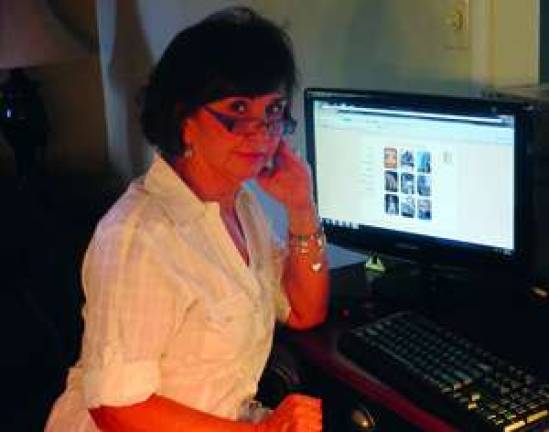WAHVE of the Future: Why Senior Workers Are Better

Like many successful companies, WAHVE (Work at Home Vintage Employees) was a business created to solve a specific problem. Founder and CEO Sharon Emek had been mulling over the conundrum her industry, insurance, had been facing for years: the imminent loss of a huge segment of the workforce through retirement. Fifty percent of workers in the insurance industry are baby boomers. "There had been many articles written over the last number of years, saying that the industry is going to face a big crisis with all our baby boomers retiring, that we're going to lose all this institutional knowledge," Emek said. "We did not have young people come into the industry over the last 10 years. They went to Wall Street or elsewhere. No one sees the insurance industry as a very sexy industry." Emek, an Upper East Sider, has a long and distinguished career in insurance and knows the industry inside and out. She had been the chair of the[ Independent Insurance Agents & Brokers of New York](http://www.iiaba.net/ny/default?ContentPreference=NY&ActiveTab=STATE&ActiveState=NY) and started her own firm in 1988. She regularly spoke at industry events and networked with other agents and brokers, and saw firsthand that everyone was facing the same hurdle. "We're all fighting over the same qualified people," she said. "I woke up with the idea one day." The idea-to utilize newly retired professionals at a lower cost by having them work remotely-became WAHVE, a company that Emek believes can help not only the insurance industry but the seniors it employs. The company only hires people with 25 or more years of experience-no exceptions. Emek said that she settled on calling them "vintage employees," evoking the category of fine wines or cool cars, after tossing out other names that just pointed to old age. "We're vintage. We're not retiring, we just want more life-work balance and to work in a different way," Emek said. "I've always been very technologically advanced in my industry. I'd already been working remotely at home for 10 years." The company hires contract employees, most of whom have been working in the industry for their entire career and want to either return to work after retiring or who are transitioning from full-time office work. They get matched with insurance companies on assignments of varying lengths, full time or part time, and work from home or wherever they want to set up. Emek said that they've developed software that matches employees with clients based on very specific criteria, not unlike a dating service system. "It's unbelievably simple," said Frank Sentner, the company's chief operating officer. "The hardest thing is to get it through the heads of the business people that there's really no difference between managing personnel in your office or managing personnel who you've never met who work remotely." When he talks to potential clients, Sentner focuses on the cost benefits of hiring virtual vintage employees through WAHVE. "It costs about 40 to 50 percent less. [Employers save on] office space, heat, light, electricity, computer systems, bandwidth. Pretty much every cost in an insurance firm is directly related to personnel, to headcount," Sentner said. "Our people are all of a certain age, they are working to supplement a retirement income, so they're willing to take less because they're working from home." Emek said that many of their employees are happy to trade the higher salaries for the flexibility to live near family and take on the amount of work they want to at any given time. She also said that many of the clients, forced to cut costs somehow, are thrilled to be able to hire older Americans. "Brokers win because they get amazing talent at a lower price and they don't have to outsource overseas-a lot of them feel terrible in this economy outsourcing overseas," she said. "The retiree feels wonderful because instead of having to work in a local hardware store, they're actually a real insurance professional. Many of them have designations and licenses, and so they feel that they're still important, they're still involved in the industry, they're supplementing their retirement income." Statistics show Emek's observations are right on the nose. This summer, AARP and the Society for Human Resource Management conducted a survey of workers over age 50 to find out what they're looking for in potential employment. The survey found 78 percent of respondents plan to continue working for financial reasons, like money and health insurance, as opposed to working solely for enjoyment or the desire to remain productive. The survey also found that 52 percent of those who are currently unemployed would prefer to find a job in their professional field instead of changing careers or starting their own business. In addition, 62 percent of workers rated alternative work arrangements as "very important" in considering jobs, and 44 percent rated telecommuting as "important." Emek hopes that WAHVE will soon be expanding into other white-collar industries, like law and accounting, and she's committed to the model of sticking with vintage employees. For one thing, she said, hiring people with over 25 years of experience means that they don't need extensive training. She's also convinced that every industry needs to take another look at how they define and utilize older workers. "The word isn't 'retirement.' People say, 'I don't see myself as sitting on my porch in a rocking chair,'" Emek said. "We need a new lexicon to define what's happening. Because we're living longer, the definition of work is changing. I don't know what will replace retirement. That's why I'm using the word 'vintage.'"